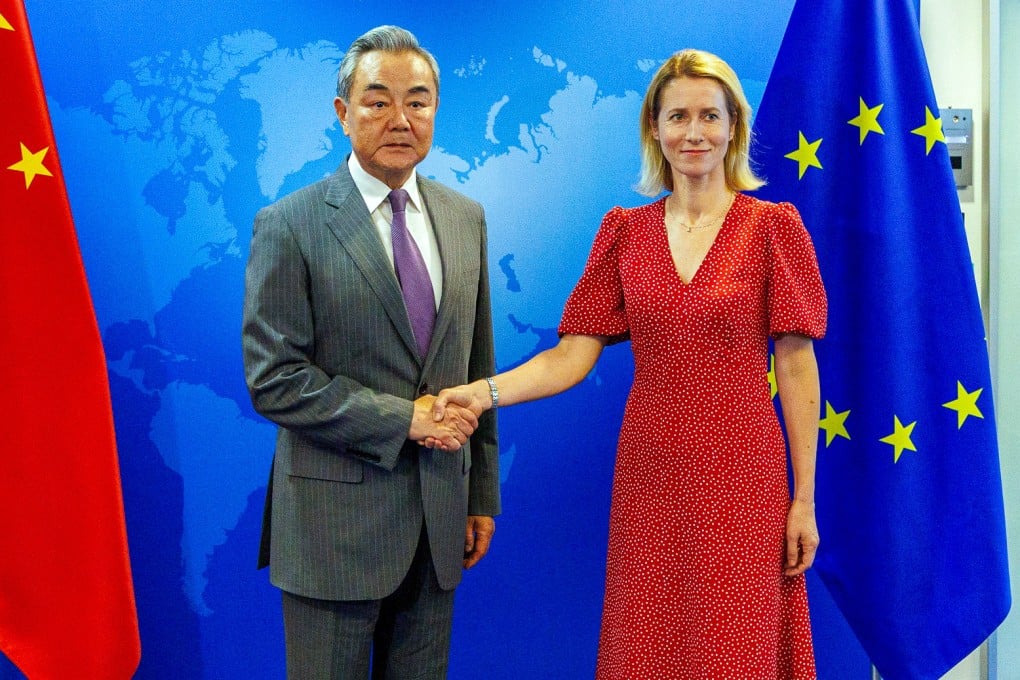Articles in this Cluster
03-07-2025
The U.S. has reversed recent export restrictions on chip-design software to China, allowing Synopsys, Cadence, and Siemens EDA to restore access for Chinese customers in compliance with U.S. export laws. The rollback, following May 23 rules that required licenses for such exports, comes amid signs of a U.S.-China trade truce that includes conditional agreements on rare earths and advanced tech exchanges. Synopsys and Cadence shares jumped 6–7% on the news. The three firms dominate the global EDA market, holding a combined ~74% share in 2024.
Entities: United States, China, Synopsys, Cadence, Siemens EDA • Tone: analytical • Sentiment: neutral • Intent: inform
03-07-2025
The article argues that Europe’s post–Cold War belief in a stable, rules-based international order has collapsed amid renewed warfare in Ukraine, the Middle East, and neglected conflicts in Africa. Sanctions and diplomacy have not replaced military force; instead, order depends on a dominant power willing and able to enforce rules. With U.S. authority diminished and ceasefires proving fragile, the current lull is likely temporary. Europe must adapt to a more chaotic, power-centric world by strengthening its military capabilities, embracing realpolitik, and preparing to secure its interests amid recurring coercion and conflict.
Entities: Europe, post–Cold War order, Ukraine, Middle East, Africa • Tone: analytical • Sentiment: negative • Intent: analyze
03-07-2025
China’s top diplomat Wang Yi told EU leaders in Brussels that China is a peaceful, cooperative partner and should not be viewed through a US lens or as an opponent despite differences. He argued Europe’s current challenges do not stem from China and urged a “rational understanding” to avoid confrontation. The EU’s Kaja Kallas pushed for concrete steps to rebalance economic ties and called on China to lift restrictions on rare earth exports. Wang emphasized China’s distinct diplomatic approach and record on peace compared with the United States.
Entities: Wang Yi, European Union, Kaja Kallas, China, United States • Tone: analytical • Sentiment: neutral • Intent: inform
03-07-2025
China’s foreign minister Wang Yi told EU foreign policy chief Kaja Kallas that Beijing does not want Russia to lose the war in Ukraine, fearing a Russian defeat would let the U.S. redirect its full strategic focus onto China, according to sources. While rejecting claims that China is materially aiding Russia—saying if it were, the war would have ended—Wang’s candid remarks contrasted with China’s public stance of being “not a party” to the conflict. In a four-hour meeting covering geopolitical and trade disputes, Wang delivered pointed “history lessons,” which some EU officials saw as realpolitik, underscoring Beijing’s concern about an impending U.S. pivot toward containing China.
Entities: China, European Union, Russia, Ukraine war, Wang Yi • Tone: analytical • Sentiment: neutral • Intent: inform
03-07-2025
The US has lifted recently imposed export controls on certain electronic design automation (EDA) software to China, allowing Siemens, Synopsys, and Cadence to resume sales without special approval. The Commerce Department’s Bureau of Industry and Security notified the firms that restrictions from late May were rescinded effective immediately. Cadence and Synopsys are restoring access for China-based clients, while Siemens has already reinstated access, signaling a further easing in US-China tech tensions.
Entities: United States Department of Commerce, Bureau of Industry and Security, China, Electronic Design Automation (EDA) software, Siemens • Tone: analytical • Sentiment: neutral • Intent: inform
03-07-2025
The SCMP page compiles recent US economy, trade, and business developments with a focus on US-China dynamics. Key themes:
- Trade shifts and tariffs: The US reached a deal with Vietnam setting a 20% import tariff (40% for transshipped goods), prompting many Chinese manufacturers in Vietnam to stay put. The EU may accept higher US levies; Canada weighs tough stances with potential backlash. US lawmakers advanced a bill barring energy tax credits for China-linked firms and curbing “de minimis” customs.
- US-China negotiations and exposure: The US and China reported progress on export controls and an “understanding” on rare earth shipments. Major US firms with China exposure include GM, Tesla, and Ford. Apple’s dependency on China is debated.
- Market and corporate moves: Nvidia reclaimed top market-cap spot. TikTok Shop cut more US jobs amid a looming ban. “Trump Mobile” dropped “Made in USA” claims.
- Global supply chain strategy: At “Summer Davos,” executives urged Chinese firms to relocate manufacturing abroad to mitigate tariffs; leaders warned US tariff uncertainty is chilling investment.
- Macroeconomic outlook: Analysts say China weathered H1 turbulence but faces a challenging 2025; yuan could benefit as central banks question long-term dollar dominance. China’s high-tech exports to the EU surged while exports to the US fell; Chinese imports of US farm goods dropped as it shifts suppliers.
- Politics and rhetoric: Trump touted forthcoming tariff demands and downplayed tensions with China; the White House clarified his remarks on China and Iranian oil.
- Cross-border finance: Asian family offices are expanding in the US, with Andon Hong Kong opening a New York office.
Entities: United States, China, Vietnam, European Union, Canada • Tone: analytical • Sentiment: neutral • Intent: inform
